Teng Biao: Chinese Liberalism Going Astray——The Right-Winging of China’s Pan-Democrat Intellectual Group and the Phenomenon of Supporting Sichuan
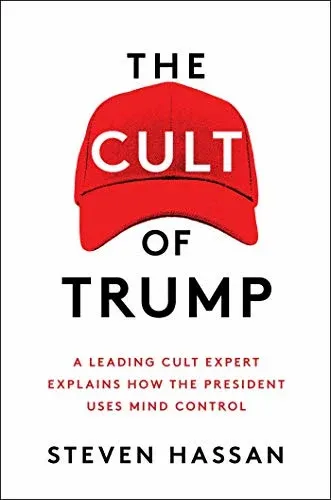
1. Raising the question: Liberals who support Sichuan?
The birth of Trump in 2016 and the turmoil on Capitol Hill before Trump's resignation in 2021 have aroused great concern in the United States and the world, and have also violently impacted the political, social and ideological landscape of the United States. China's intellectual circles have also thrown themselves into the heated debates of the US election with unprecedented enthusiasm.
First define the object to be discussed. It includes Chinese intellectuals, democrats, dissidents, human rights activists, Falun Gong groups who oppose the Communist Party, religious figures, and pro-democracy activists who live in mainland China and who live overseas from mainland China, and who agree with freedom. Democratic netizens. [1] (Hereafter I will use the abbreviations of "Pan-Democrats Intellectual Group" and "Pan-Democrats". "Min" can be associated with democracy, civil rights, and folk, as the opposite of the CCP's political system and ideology.) Generally speaking , this group supports human rights, democracy, freedom, and the market to varying degrees, but it covers the political spectrum from left to right in the Western context, and its internal complexity is a hodgepodge. They are referred to as a group, with a loose group identity among them, mainly because they are all dissatisfied with or opposed to China's current political system.
Although there are no statistics, it has been observed that the majority of Chinese pan-democrat intellectual groups support Trump. [2] The debates and divisions in the Chinese intellectual circles are ever-present, but they have never been more intense and profound than this time. This has aroused the interest of scholars to further explore. Lin Yao uses lighthouse doctrine to explain this phenomenon [3] . The first is "political lighthouse doctrine": Chinese intellectuals have formed a simplistic and one-sided perfect imagination of the American democratic system, and the United States has become an idealized projection object for intellectuals who yearn for freedom and democracy. When the social ills and cultural problems in the United States were gradually exposed, a strong sense of group anxiety and loss was formed. The second is "Lighthouse of Civilizationism". China's "100-year national humiliation" and its rapid rise in the past 30 years have shaken the Chinese intellectuals with a strong national consciousness. The hands of white people and non-Christians, either hope to revive Chinese civilization to be on an equal footing with the West, or return to the throne of world hegemony through the internal success and external export of the Chinese model.
Lin Wen has many insights, but there are still questions to be explained: Why did Chinese pan-democrats not show such enthusiasm and obvious division in previous US elections? Why do they have Washington-Jefferson-Reagan-Trump-Wall Street-WASP (White Anglo-Saxon Protestant) as their beacon instead of Lincoln-Harriet Tubman-Martin Luther King Jr.-AOC-Sanders? There are political, economic, cultural, and social psychological factors behind Trump’s support. This article mainly attempts to explain it from the perspective of ideological dissemination and political psychology. The second, third, and fourth parts of this article discuss the distortion of liberalism in China and its causes: speech and information environment, the sharp rightward turn of the CCP system, and the stigmatization of "leftists" and "socialism". Fifth The first part discusses the root causes and manifestations of Chinese racism and social Darwinism. The sixth part discusses the anti-communist complex of the pan-democrat intellectuals and the frustration after repeated suppression of resistance, thus pinning their hopes on external political strongmen. The last part is Brief summary.
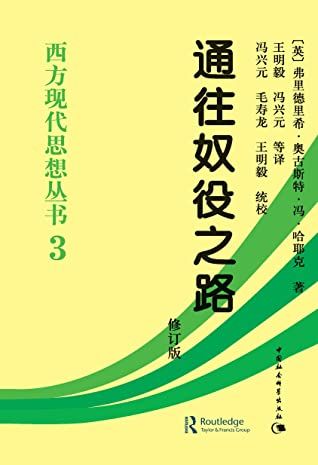
2 Distorted Information and Distorted Liberalism
China's pan-democrat intellectuals live in Chinese-language information and rely heavily on Chinese-language media. In mainland China, traditional media is monopolized by the government, and emerging online media is also subject to strict censorship. The control of speech undermines people's sense of reality. The vast majority of overseas democrats live in Chinese areas and have little interaction with non-Chinese. Overseas, the Chinese government has increased its penetration of overseas Chinese-language media. Most Chinese-language media are directly or indirectly controlled by the CCP. The Falun Gong media, which is increasingly influential, has become an active disseminator of conspiracy theories in this election. The general right-wing of overseas Chinese-language self-media and Falun Gong media has provided Chinese readers with a lot of biased comments, fake news and conspiracy theories. But why they are right-wing requires an explanation.
Liberalism is the most influential political theory in the contemporary West, and almost every pan-democrat in China considers itself a liberal. However, after liberalism was introduced to China more than a century ago, it was revised, changed, misunderstood, and even distorted by the influence of international and domestic situations, Chinese ideological traditions, and social structure. Yin Haiguang once said that Chinese liberals are inherently deficient and out of balance. “When it comes to a critical moment, or when faced with a complicated situation, some people will deviate from it, either advocating a ‘new dictatorship’ and becoming a ‘neoconservative’, or abandoning their rational stance and turning to radical revolutionary populism.” [4] Before 1949, Fabianism or social democracy once became the mainstream of liberalism, some of which had a populist tendency; at the same time, under the anxiety of the peril of their family and country, some liberals were also tainted with strong nationalism. With the establishment of a totalitarian system by the CCP, liberalism almost disappeared in the mainland until the end of the 1970s, when it revived again.
After the 1980s, all kinds of political thoughts that entered China “are trying to influence and change China, but it is the ideas of liberalism that really point out China’s future.” [5] But because of strict speech censorship, classroom teaching and academic discussions are restricted , there is widespread self-censorship in the intellectual circles, many documents cannot be translated and published, and many translations have been abridged or even tampered with, unable to present the overall picture and latest development of Western liberalism. China's political system and ideology will inevitably affect the direction of the ideological and academic circles, and will inevitably suppress those trends of thought and theories that may be unfavorable to those in power in China.
After the Cultural Revolution and before 1989, Chinese intellectuals called for human dignity, value, enlightenment, and ideological emancipation. Their acceptance of liberalism was closely related to their reflection and negation of the Mao Zedong era. From "setting things right," "emancipating the mind," and "anti-Cultural Revolution," to "anti-tradition," "overall Westernization," and "cultural craze," it was a difficult exploration, but it was also very lively. Western humanist philosophy that influenced Chinese thought and culture at this stage, "except for a few with a slight empirical scientific tendency, most of them are relatively extreme and emotional theories." [6] For example, Nietzsche, who was very popular back then. [7] China's reform and opening up coincided with the Reagan-Thatcher Doctrine, and the establishment of a "socialist market economy" also needed neoliberal economics that advocated marketization and privatization. After the 1990s, it had the greatest impact on Chinese intellectuals Many Western thinkers include Hayek, Friedman, and Mises. Although there are also multiple divisions within Chinese liberalism, the Austrian School of Economics and the Chicago School of Economics, which advocate "small government, big market, low tax and low welfare," laissez-faire liberalism, neoliberalism, and (right-wing) libertarianism have the most Followers widely influence public opinion. To some extent, neoliberal economics is regarded as the only Western economics, and the liberal right wing is regarded as the orthodoxy of Western liberalism, which has been overly respected; other branches of liberalism, revisions and reflections on liberalism There is a lack of systematic introduction to other western thought trends.
Generally speaking, China’s pan-democrats lack understanding of the historical context of liberalism, and may have overlooked Adam Smith, Mill, and Carl. There are many ideological resources such as Polanyi, British social liberalism, and American progressivism, [8] and lack of research and understanding of recent progressivist trends of thought and social movements. Although social democracy, critical race theory, environmentalism, feminism, and gender diversity have been introduced, Rawls, Dworkin, Marcuse, Dewey, Habermas, Amartya. Sen, Said, Giddens and other "left-wing" characters also have many readers, but they cannot interact and compete with the mainstream right-wing liberal discourse.
In the Chinese circle, many intellectuals who used to be liberal and still think of themselves as liberal have deviated a long time ago, and some of their discussions have even gone astray. Many people are moving toward market omnipotence, and their superstitious belief in small government has reached an excessive level. They believe that there is a pure and omnipotent "free market" and a government that is as small as possible (Minarchism), and strongly rejects social welfare. and equal value. Zhang Wuchang, Zhang Weiying, Xue Zhaofeng, Xia Yeliang, etc. all have this tendency to some extent. Founded in 2006, the "Pencil Society" advocates market fundamentalism and is dubbed the "National Austrian School" (National Austrian School of Economics) and China's "Tea Party". Key members such as Li Ziyang have moved towards right-wing nationalism. Many influential scholars turned to conservatism, such as Liu Junning, Cong Riyun, Gao Quanxi, Sun Liping, Guo Yuhua, Wang Jianxun, etc. Some obey the Straussianism that denies the Enlightenment. Some people embrace a rather conservative branch of evangelicalism and confuse faith discourse with public discourse, such as Yu Jie, Ren Bumei, Zhao Xiao, Su Xiaohe, Wang Yi, etc. Some people turned to nationalism, such as Wang Hui, Jiang Shigong, Chen Duanhong, Hu Angang, Gan Yang, Wang Shaoguang, Cui Zhiyuan, Mo Luo, Zhu Suli, Wu Jiaxiang, etc. [9] Qiu Feng, an Austrian researcher, turned to political Confucianism, which had an ambiguous relationship with the authorities. Liu Junning emphasized that "conservatism is the tradition of conservative freedom." In the Chinese context, it caused confusion between the concepts of conservatism and liberalism. On the one hand, he absurdly classifies fascism as ultra - left. It becomes like evangelism. Liu Junning had a great influence on the Chinese intellectual circle after the mid-1990s, and was once regarded as one of the representatives of liberalism. His transformation is a microcosm of the right-turning of China's pan-democrats.
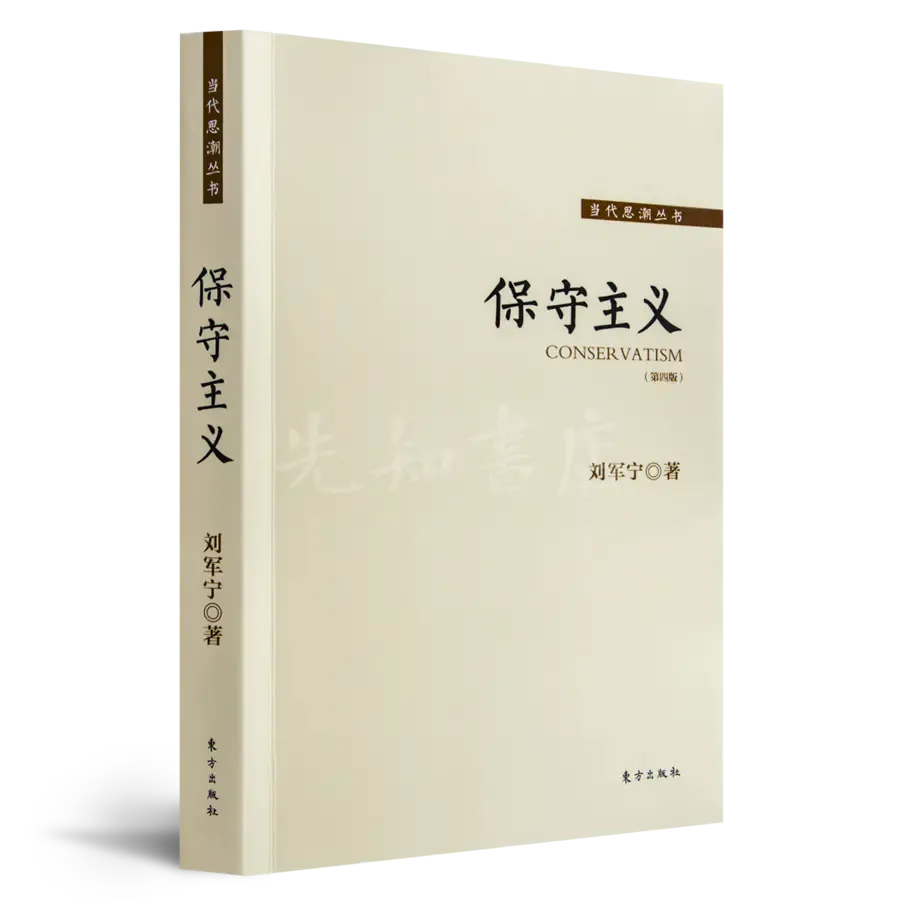
3 Collusion between officialdom and liberalism?
The selective acceptance of liberalism and the preference for the right wing by Chinese pan-democratic intellectual groups is not accidental, and cannot be explained only by the preferences of translation, publishing, and academic research, nor can it be explained only by the world trend of thought since Reagan-Thatcher and the state of economic development. It is inseparable from China's political and economic structure since the late 1970s, especially the need, acquiescence and guidance of official ideology.
Opening up the country, separation of government and enterprises, restructuring of state-owned enterprises, privatization and market-oriented reforms, these measures are all huge progress compared with the Mao era. At one time, they released huge productivity, expanded the freedom of citizens, and received joint support from the government and the people. . Before 1989, judicial reform, administrative reform, and political system reform were launched, and some results were achieved; although the core of the one-party system has not been shaken, constitutionalism has not become an option for the Communist Party.
However, on the one hand, the June 4th massacre interrupted the process of political reform; on the other hand, it accelerated the marketization of power and the capitalization of the rich and powerful. "As soon as the gun is fired, theft turns into robbery." With the deepening of government-business collusion, the vicious development of GDP-only doctrine, the marketization of housing, education and medical care, and the global economic process of joining the WTO, under this "market totalitarian system" or "market Leninism", China's economic take-off has been exposed. Disadvantages have emerged: disparity between rich and poor, ecological environment destroyed, corruption rampant, human rights violated, and social morality degraded. [11] The massacre has caused widespread fear, and it is no longer possible to directly challenge the one-party system in political actions. Avoiding the political system and calling for marketization coincides with the needs of the authorities.
In the 1990s, the Hayek craze rose in mainland China. Works such as "The Road to Serfdom" and "Fatal Conceit" deeply criticized socialism, planned economy and totalitarian system, and played a very positive role in the enlightenment of the people. Chinese pan-democrats believe in Nozick's "minimum state" and Hayek's discourse against social distribution. They oppose distributional justice, minimum wages, social welfare, trade unions and labor collective bargaining rights, and environmental protection movements. These policies and concepts are simplified, dogmatic, and removed from their political coordinates and institutional environment, which is obviously welcomed by the Chinese authorities. For example, Naisbitt once hailed China's absence of welfare obligations, calling it a "model of liberalism." Another example is that in China, where independent trade unions are banned and labor is oppressed by both capital and the government, anti-union advocacy can almost be seen as an autocratic conspiracy.
In this regard, Qin Hui has a continuous and clear-cut analysis and criticism. There are many references such as "low human rights advantage", "negative welfare", "robbing the poor to help the rich", "the right hand strives for freedom, and the left hand strives for welfare". Explanatory power. He said that small government should "get rid of the undue shackles of power, not to destroy social security; it means to limit the power of the government, not to shirk the responsibility of the government." [12] "What neoliberalism opposes is A democratic welfare state. The latter does not exist in China, so neo-liberalism has no meaning in China. Now some people emphasize that it can’t limit the ruling power, but it’s not liberalism in any sense.” [ 13] It is a pity that such voices have not become mainstream, and they are powerless to stop Chinese liberals from sliding to the right, or even to the extreme right.
After the CCP changed from the Maoist extreme left to the extreme right in many aspects (see the next section), the right-wing conservative tendency of the pan-democrats in China made their criticism lose sight and even became a conspiracy. Judging from the CCP’s consistent control of publishing, education, and guidance of public opinion, it is impossible for the right-wing movement of China’s pan-democrats to be without the help of the CCP.
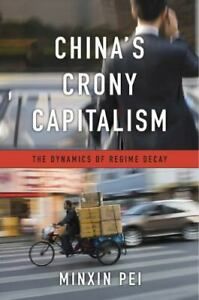
4. The Trauma and Stigma of "Left" and "Socialism"
Another factor leading to the right-wing of the pan-democrat intellectual group is the huge disaster and trauma brought to China by "leftists" and "socialism", as well as their stigmatization in China and the United States.
The CCP, which implements communist totalitarianism with Marxist-Leninist ideology, of course belongs to the extreme left for a long time. For mainland-born intellectuals, "Left" naturally reminds people of Marxism-Leninism-Maoism, communism, socialism, people's communes, planned economy, and the history of crime and blood and tears of the Cultural Revolution. The extreme left has brought serious disasters to China, and many people still turn pale when they hear "left", which can be called "communist sequelae". During the ultra-left period, the CCP labeled all dissidents as "right", "anti-rightist movement", "counter-revolutionary trend of right deviation", so that "prefer the left rather than the right" has become a long-term tradition of the CCP. With the end of the Mao era, many people gradually took pride in belonging to the "rightist" camp. Over time, they subconsciously formed a stereotype that left is wrong and right is right, and left is bad and right is good. [14]
Needless to say, those who voiced opposition during the Mao era were regarded as rightists; in the post-Mao era, those who criticized the existing system, engaged in political opposition, and defended the rights of disadvantaged groups were almost entirely "rightists". ” gained honor and folk roots. The "leftist" is another scene: the Maoist leftists are walking in the opposite direction of history [15] ; most of the official scholars have become the mouthpiece of ideology and the defenders of the current system; In other words, the criticism of the New Left is only aimed at the market and capitalism in "market totalitarianism" and "crony capitalism", and dare not or unwilling to target totalitarianism and power. All this has brought the "left" into disrepute. The voices of social democracy, the constitutional left, and the liberal left have been misunderstood and suppressed, failing to form a clear discourse, and failing to gain due group recognition and social influence. [16] Against the background of the right-wing transformation of the party-state system, looking at China’s ideological circles and public opinion fields since 1992, the most active forces are actually neo-liberalism that is anti-welfare, conservatism that is anti-equality and anti-progressiveism, And anti-constitutional statism and nationalism.
Similarly, the theory and practice of what is called "socialism" is deeply sinful in China. "Socialism" in the Mao era was public ownership, a planned economy, a one-party system, and Marxism-Leninism; "socialism (market economy)" in the post-Mao era was crony capitalism under a one-party system. But in the West, neither of these "socialist" counterparts exists. Liberals in the Chinese circle see socialism as a scourge, and are naturally close to the anti-socialist narrative of the American right. The United States has a longer history of demonizing communism and socialism. The first red scare in 1917-1920, McCarthyism in the 1950s, the Cold War, etc., socialism is regarded as "un-America (un-America)" . [17] They also demonize the Nordic welfare state, Sanders and even the entire American Democratic Party. [18]
The stigmatization of "leftists" and "socialism" has two negative effects:
First, ignoring that the political coordinates have undergone a certain reversal, and misjudging the nature of the CCP system. After the end of the 1970s, Marxism-Leninism gradually weakened, and the planned economy was gradually abandoned. The CCP began privatization and market-oriented reforms while maintaining the one-party system. The CCP’s current system has become extreme left (deprivation of freedom) and extreme right (opposition to equality and welfare). This kind of aristocracy capitalism wears some extreme left ideological cloaks ("socialism" in the constitution, "dictatorship of the proletariat", "Marxism-Leninism", etc.), and at the same time has nationalism, Han chauvinism, and xenophobia. far-right discourse and policies of communism (rejuvenation of the Chinese nation, concentration camps in Xinjiang, policy of cultural genocide in Tibet, etc.).
Second, lack of sensitivity to the complex and detailed left-right spectrum in the Western context, and underestimate the Western leftist thoughts and social movements that have profoundly influenced today's ideological trends and social practices. The tragic "left disaster" has prevented them from viewing Marxism, neo-Marxism and related theories calmly, intentionally or unintentionally confusing the West Left with China's ultra-left and communism. They belittle or ignore the positive connotations of "left" in the conditions of a democratic constitutional market economy. Most mainstream Western media, universities, and human rights institutions belong to the left (liberals) and are denounced as the corruption of the United States. [19] Taking the CCP system as the coordinate system to discuss the current struggle between left and right in the West, there is either a lack of dialogue or a mess. [20]
The pan-democrats in China simplistically believe that "the Democratic Party is equal to tax increases and a big government, while the Republican Party is equal to tax cuts and a small government" and that "the Republican Party is more conducive to economic development than the Democratic Party." [21] In fact, pursuing equality, social justice, and guaranteeing welfare on the basis of recognizing freedom and the market has almost become the consensus of democracies around the world; label this as "socialism" and interpret it as Mao Zedong and Stalin's The system is so wrong.
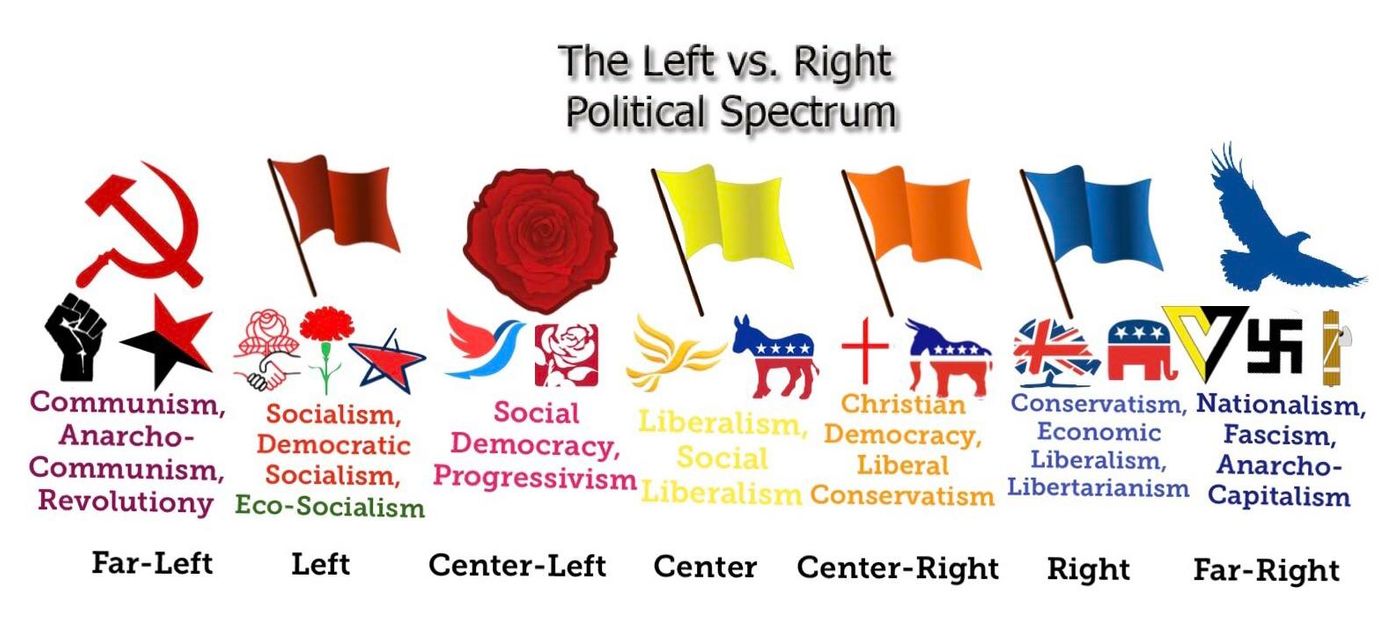
5. Racism and Social Darwinism
A few months before the U.S. election, the Chinese-speaking community began a heated debate on the BLM movement (Black Lives Matter). People who are against BLM are almost all for Trump, and most people who are for BLM are against Trump. During the discussion, many pan-democrats revealed racist tendencies, and some made no secret of their strong social Darwinist stance. He Qinglian compared BLM to the American-style Cultural Revolution, saying that it was "the extreme left wants to realize socialism in the United States." Wei Jingsheng, Xia Yeliang and others also compared this movement to the Cultural Revolution. Many people, including Li Jianglin, Guo Yuhua, and Chen Pokong, said that this movement was "smashing, smashing, looting." The behavior is that of fascists and Red Guards." [22] Wu Jianmin told Obama to "go back to his hometown in Kenya." Human rights lawyer Sui Muqing said Mrs. Obama was "uglier than a gorilla". [twenty three]
Discriminatory remarks against Muslims are more and more common. “A little browsing of China’s social media shows that hate speech against Muslims has become a common practice. …Many “rightists” in China are influenced by Western “rightists”, that is, conservatives. They believe that Muslims are incompatible with modern society and are a threat to liberalism. [24] Insulting terms such as "Green Religion" and "Green Green" equate Muslims with cults and terrorism. and hate. [25] They strongly criticize "political correctness" and the so-called "white left", and believe that tolerating Muslims is a childish hypocrisy.
During the European refugee crisis, they were either indifferent, or they were openly anti-refugee and anti-Muslim, calling Merkel a "Madonna bitch". The Chinese government has imprisoned millions of Uighurs and Kazakhs in concentration camps, and is carrying out genocide in Xinjiang. Some people not only do not condemn it, but applaud it, saying that this is the need to combat terrorism and separatism. Here, the Chinese authorities and the (Han) people have formed a kind of complicity: “Officials have acquiesced in the spread of anti-Muslim rhetoric in order to justify their tough repressive policies in Xinjiang.” [26]
Of particular note is the absurd association between the democratic movement and racism: a weaker thread accompanying the student protests of the 1980s was the anti-black movement, which took place in Shanghai (1979), Tianjin (1986), and Nanjing (1988) this type of movement. The Nanjing incident was the most influential, thousands of students unfurled slogans such as "Down with the niggers" and "Go back to the niggers". Foreign researchers have found that many people who strongly pursue democracy also have deep racist mentality. "Behind this dissatisfaction is the understanding of modernization and China's role in the world order by Chinese intellectuals and students." loser. [27] Social Darwinism lies behind Chinese discrimination against people of color (especially blacks), Muslims, and immigrants. Whites are the most superior, Chinese are second-class whites, then other people of color, and the lowest are blacks. [28]
In terms of religion, China's pan-democrats look up to Christianity, especially Protestantism, and discriminate against other religions, the most discriminated against is Islam. This can be regarded as a chain of discrimination based on religious lighthouse doctrine. The vast majority of Chinese Christian intellectuals support Trump, and they embrace conservative evangelicalism, while the progressive school of Christianity has little influence on the mainland. "The United States is a Christian country, and the core of the American spirit is Christian culture", [29] "Jerusalem is the spiritual capital of the American order", [30] These statements are very marketable. Some people regard Trump as the "chosen man" and see the Trump-Biden dispute as a dispute between good and evil. Chinese pan-democrats are extremely anxious about the rising proportion of non-Christian and non-white immigrants in the U.S. population, and believe that these immigrants with multicultural backgrounds (especially Muslims) will destroy American democracy. [31] They worry about the sexual liberation movement since the 1960s, the legalization of abortion, the feminist movement, and the LGBT movement, and believe that this threatens traditional Christian values (considered to be "American roots"). Huntington, who has been criticized in the West for being racist and xenophobic, has become very popular in China. [32] The right-wing and conservatization of China’s pan-democrats, together with racism and social Darwinism, make their positions coincide with Trump’s on social issues: anti-immigrants, anti-Muslims, anti-gun control, anti- Abortion etc.
Chinese social Darwinism and racism have a long history. Its systemic racism is "rooted in China's history as an empire," manifested in prejudice against conquered and colonized others, and "Han chauvinism and racist-nationalist ideology are modern The conceptual basis of China.” [33] Kang Youwei, Liang Qichao, Tang Caichang and others divided the races in the world into noble/excellent and cheap/bad. And the future belongs to the "historical" white or yellow race. “The vast majority of Chinese people still believe that our race is inherently superior to our lighter or darker-skinned neighbors.” [34] The “hundred years of humiliation” of the Celestial Kingdom being bullied by the West further made modern China embrace social Darwinism .
In particular, the political reality in post-1949 China was fertile ground for social Darwinism. Winners and losers, the weak prey on the strong, is not only the logic of the CCP, but also the reality of society. Needless to say, the household registration system, status hierarchy system in the Mao era (land rich against bad right), smashed the public security law, collusion between government and businessmen, forced demolition, removal of low-end population, and the gap between rich and poor in the post-Mao era are prevailing behind the distorted market rules. The rules of the jungle dominated by the powerful; urban people discriminate against rural people, rich people discriminate against poor people, Han people discriminate against ethnic minorities, and discrimination based on provinces, appearance, education, gender, sexual orientation, physical defects, etc. Most Chinese elites believe that their success is due to being better and harder than others, and "poor people must have something to hate", poor people are either incompetent or lazy; high welfare is regarded as "raising lazy people", [35] Under the logic of Social Darwinism, the vast majority of Trump supporters oppose BLM and Affirmative Action, calling it "reverse discrimination." They are very disgusted with the social changes promoted by progressivism (feminism, sexual minorities, racial equality, climate change, political correctness, etc.), and believe that this is the degeneration of the United States.
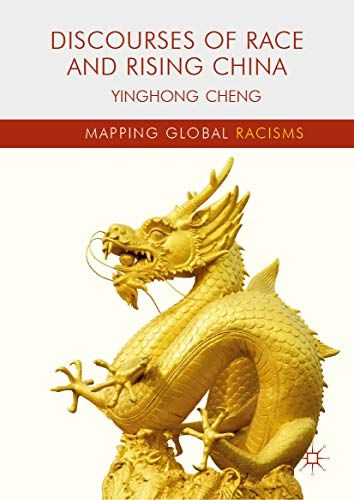
6. Anti-communist complex and sense of powerlessness in resistance
For China's pan-democrat intellectual groups, changing the autocratic system and realizing China's democratization is the strongest and most persistent concern. They are victims or witnesses of the Anti-Rightist Movement, the Cultural Revolution, and the June 4 massacre. They feel the same for religious persecution, news censorship, brainwashing education, and literary inquisition. Many people were fired, monitored, sentenced, tortured, and their families were implicated. Some were forced into exile overseas, and some even paid the price with their lives. They have a deep understanding of the anti-freedom, anti-democracy, and anti-human nature of the CCP regime. Some people regard anti-communism as the greatest goal of life and the highest truth, and the complex of "hatred of the communist party" sometimes reaches the level of obsession. For example, the well-known dissident Zhao Changqing wrote on Twitter, "If the CCP can be overthrown now, even if It doesn’t matter if the Taliban come to power!” [36]
Since the Xidan Democracy Wall movement, the student unrest in the 1980s and the Tiananmen Democracy Movement, the non-government party formation in the 1990s, the rights defense movement and Charter 08 after 2000, efforts to fight for democracy have been extinguished by the authorities time and time again. Since Xi Jinping came to power, the situation of human rights and the rule of law has continued to deteriorate, China has moved towards what I call "high-tech totalitarianism" [37] , and there seems to be no hope of democratization in the foreseeable future. The efforts of several generations have failed, and political expression has been continuously suppressed. This sense of frustration, shame and powerlessness can easily lead some people to embrace charisma-type political strongmen who do not follow the rules.
Hatred of the CCP has become the biggest and most direct psychological motivation to support Trump. The pan-democrats are extremely disappointed with the U.S. policy toward China after 1989, and believe that Trump is the toughest toward the Chinese government. They believe that the West's "engagement policy" towards China is actually a kind of appeasement, which has caused the rise of Chinese autocracy. But Trump has reversed this situation with his own power, allowing people to see the hope of changing or even overthrowing the CCP regime. These perceptions are partly justified. [38] Perry Lin also pointed out that the "naivety" or misjudgment of the West's view of the CCP is a factor in the support of Trump by Chinese liberals. [39]
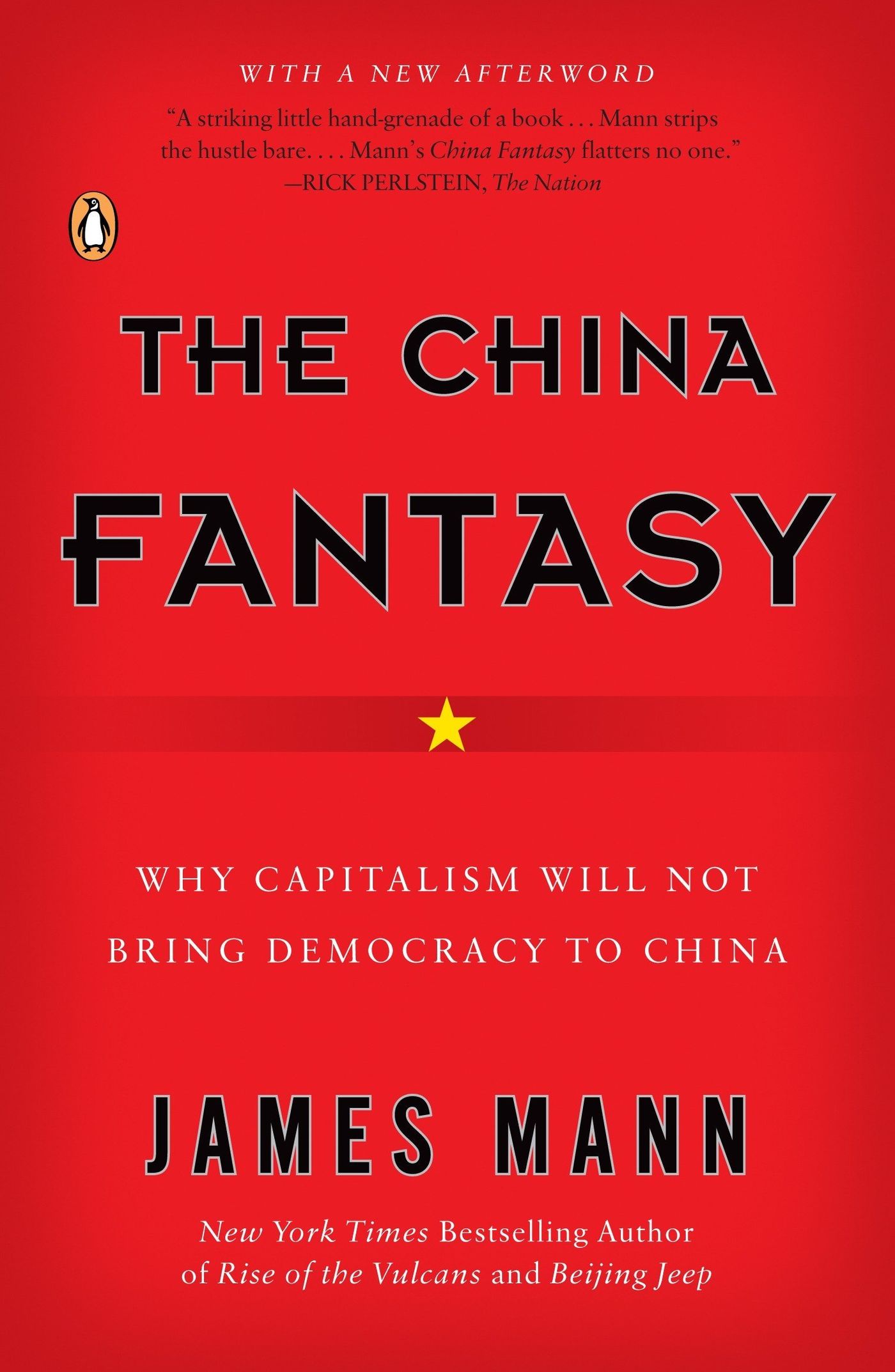
7. Conclusion
Since liberalism was introduced to China at the end of the 19th century, it has been continuously revised and misunderstood due to the domestic and international difficulties and the actual needs of saving the nation; it was almost destroyed in the Mao era, and then gradually recovered under the authoritarian environment, and it cannot avoid being distorted fate. After the 1990s, neoliberalism was regarded as the orthodoxy of Western liberalism. Most Chinese liberals and activists have embraced right-wing laissez-faire. On the one hand, this is due to the hatred and backlash against the extreme left of the CCP and socialism; , anti-equality, anti-trade unions, anti-environmental protection, etc. - in line with the ideological and political interests of the CCP authorities. The right-wing of China’s pan-democrats makes them have a stereotyped understanding of the West, especially the United States. At the same time, they lack a comprehensive and dynamic grasp of progressivism in the West and the world. .
Chinese people have a long history of racism and social Darwinism. This kind of ideology that is incompatible with liberalism has eroded a large number of Chinese pan-democrats. The political and social reality in China after 1949 further strengthened and internalized racism and social Darwinism. This can explain their support for Trump's anti-immigrant, anti-Muslim, anti-racial equality and sexual minorities and other policies and rhetoric.
The Chinese pan-democrats’ abandonment and opposition to the CCP system in theory and their hatred of the CCP’s crimes in reality have combined a strong anti-communist complex; they have been persecuted and attacked repeatedly on the road to explore democracy, forming deep frustration Feelings of powerlessness and powerlessness; therefore desperately hope for external factors, especially political strongmen. Trump was regarded as the terminator of the appeasement policy and the strong enemy of the CCP by their wishful thinking. He echoed the hatred, despair, and frustration of the Chinese pan-democrats. His values and policies also coincided with the right-wing, Conservative, and racist, social Darwinist tendencies.
Regrettably, the Chinese pan-democrats who are right-wing (a small part is sliding to the extreme right) have given up an important weapon of criticism against the Chinese system that has been capitalized by the rich and powerful, and have lost sight of the global political and economic development. Insight, on the other hand, with their racist and social Darwinist rhetoric, is undermining the pan-democrats' overall moral image and public intellectual prestige. The anti-democratic and anti-equality speeches made by a small number of people have objectively turned into autocratic complicity.
Resisting the dictatorship of the CCP requires courage, wisdom, and patience. The pan-democrat intellectuals in China have also made respectable efforts to fight for Chinese democracy. But if "anti-communism" is regarded as the highest truth, it is possible to go astray. Some people use autocratic means with the goal of anti-communism, while others are not trying to establish democracy, but some kind of theocratic autocracy or secular authoritarian rule. More people only focus on the Chinese revolution, and are indifferent to human rights, freedom and democracy in other countries, just like Trump supporters ignore Trump's destruction and threat to American democracy. [40] China's democratization is extremely important and urgent, but freedom and democracy are universal values that transcend national borders. People who pursue freedom and democracy should have at least humanistic care and the recognition of world citizens, and jump out of narrow ethnic, racial, religious interests and personal preference.
China's pan-democratic intellectual groups have a huge influence on guiding and shaping China's concept market. The right-wing movement of the pan-democrats makes people worry about the direction of China's political reform in the future. Furthermore, the unanimous "right-wing" of the CCP regime and Chinese dissidents echoes the rise of right-wing authoritarian parties/governments around the world, which will definitely impact the global ideological and political landscape.
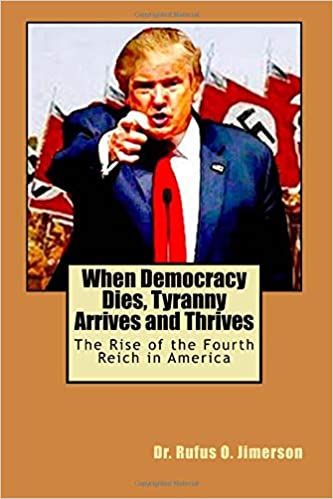
(Teng Biao, adjunct professor at Hunter College of the City University of New York, visiting professor of Pozen at the University of Chicago, researcher at the China Institute of Democratic Transition. He was a human rights lawyer and taught at the Law School of China University of Political Science and Law. He mainly focuses on and researches on human rights in China, the judicial system, Activism and political transformation.)
Notes:
[1] Although the pan-democrats in Hong Kong and Taiwan also have the phenomenon of supporting Sichuan, only part of the analysis in this article applies to Hong Kong and Taiwan, such as "stigmatization of socialism", "anti-communist complex and frustration of resistance", to a lesser extent , including "racism and social Darwinism".
[2] In January 2021, a group of scholars published "Trump Doctrine". Authors include Cong Riyun, Gao Quanxi, Liu Junning, Wang Jianxun, Zhao Xiao, Liu Peng, Xiao Han, Nie Shengzhe, Xiao Sanza, Yang Peichang, etc. Other supporters of Sichuan, such as Bao Tong, Gao Yu, Guo Yuhua, Sun Liping, Li Datong, Tong Dahuan, Li Chengpeng, Shi Jiepeng, Zhou Duo, Yefu, Ran Yunfei, etc. in China, Liao Yiwu, Ai Weiwei, Zheng Yi, Li Jie, Li Nanyang, He Qinglian, Li Jianglin, Feng Chongyi, Beiming, Lin Da, Su Xiaokang, Zhou Xiaozheng, Wu Zuolai, Cheng Xiaonong, Cai Xia, Yu Jie, Xia Yeliang, Wei Jingsheng, Xu Wenli, Wang Dan, Chen Guangcheng, Feng Congde, Fu Xiqiu, Zhao Xiao , Su Xiaohe, Gong Xiaoxia, He Jiangbing, Cao Changqing, Sheng Xue, etc., including many well-known scholars, the vast majority of pro-democracy activists and human rights lawyers, and the vast majority of Christian intellectuals.
[3] Yao Lin, "Beaconism and the Trumpian Metamorphosis of Chinese Liberal Intellectuals," Journal of Contemporary China , Vol. 30 (2021), Issue 127, pp. 85-101
[4] Xu Jilin: "The Tradition of Liberalism in Modern China", "21st Century", August 1997.
[5] Zhang Boshu: "Changing China: Chinese Political Thought Since June 4th", Traceable Publishing House, 2015, 320 pages. He sorted out nine trends of thought after 1989, including liberalism, new authoritarianism, new leftism, constitutional socialism, Maoist leftism, Confucianism, new nationalism, and inner-party democracy.
[6] Gao Handong: "The Influence of Western Philosophy in China in the 1980s", "Journal of Social Sciences of Xiangtan University", March 2002.
[7] Nietzsche is also an ideological source of the American "Alt-right" (Alt-right) and the extreme right forces in Europe and the United States. They have absorbed the anti-democratic and anti-egalitarian content of Nietzsche's thinking. George Hawley, Making Sense of the Alt-Right , Columbia University Press, 2017.
[8] Chen Guanzhong: The picture of the new left-wing ideological trend, Consensus Network, April 8, 2014.
[9] These people had accepted the idea of liberal democracy. Regarding the conservatization and statist turn of China's New Left, see Xu Jilin: "Criticism of Chinese Nationalist Thought in the Past Ten Years," Thoughts No. 18, May 2011.
[10] Liu Junning: Nazis and Hitler, left or right? Phoenix.com, August 11, 2014.
[11] Teng Biao, "The Shadow of the 'China Miracle'", PoliQuads Magazine , 2019.4
[12] Qin Hui: "The Trend of "Big Government, Small Responsibilities" Must Be Reversed", Love Thought, 2007.3.26.
[13] Qin Hui: "Limitation for Freedom, Accountability for Welfare", "China News Weekly", December 25, 2009.
[14] Yuan Tengfei’s statement is very representative: “We have seen too much leftist stuff, and it has caused us too much misery. I am naturally disgusted with leftist stuff by beating local tyrants to divide the land.” Another example, "Liberals need to reach a basic consensus: Anti-Left....The dispute between left and right is a dispute between right and left." Tong Dahuan: "Why do many intellectuals pretend to be right but are actually left?" 〉, Jingwei Xidong, December 12, 2020.
[15] During the 2018 Jasic labor movement, the traditional left-wing force combining students and workers stepped onto the stage of history. But this is a very recent development that remains to be seen. See, Yi Pan: "Jasic Workers: The Resurrection of a Left-Wing Tradition in China," New York Times, September 11, 2018.
[16] In the research and discussion of contemporary Chinese ideological trends, most of them discuss "liberalism" as a kind of ideological trend alongside other ideological trends, and rarely distinguish between liberal left-wing and right-wing. It is worth mentioning the combing and union of the liberal left, such as Chen Guanzhong: "The Picture of the New Left Ideology", Consensus Network, December 26, 2013; in 2014, Zhou Baosong held in Hong Kong "Left Liberalism and China: Theoretical and practice” seminar, the participants included Qian Yongxiang, Xu Jilin, Chen Yizhong, Liu Qing, Shi Yuankang, Ci Jiwei, Chen Chun, etc., see Li Dan: "The "Hong Kong Consensus" of Chinese Left Liberalism", Consensus Network, August 8, 2014; Zhou Baosong: "Ideas of the Liberal Left", see "21st Century", June 2015; and, 2020, with the participation of Wang Jiangsong, Teng Biao, Yang Zili, Wang Qingmin, Wang Tiancheng, etc. Constitutional Democracy Left Forum and "Constitutional Democracy Left Manifesto".
[17] How socialism became anti-American, QUARTZ, 2020.2.26
[18] Generally speaking, vigilance against and resistance to the communist autocratic regime is not a big problem morally and politically, but demonizing (democratic) socialism is difficult to justify theoretically, morally and politically.
[19] For example, He Qinglian said, "Most public schools (in the United States) are now under the control of the extreme left. The racist theory of American history and culture and the teaching theory of learning by feeling are replaced, and the school is turned into a community center that instills "'progressive' values" in students. The result is that the younger generation will inevitably lose their love for the country..." He Qinglian: "The key to reinventing education in "Retaking America"", Apollo.com, 2020.7.31
[20] Zhang Qianfan, "China and the West: A Transoceanic Misunderstanding", 2020.10.2, https://www.chinese-future.org/articles/9bebalsph4dz3eleflcmpcwknf7brn
[21] David Leonhardt, 'Blue vs. Red Economic Records,' the New York Times, 2021.2.2.
[22] Wu Zuolai: "The "Political Correctness" of the United States is more violent than the abuse of power by the police", Feng Media, 2020.6.14.
[23] Qin Chen: "Why Chinese Liberals Will Become Sichuan Fans", Inkstone, 2020.10.5.
https://www.inkstonenews.com/politics/why-chinas-liberals-trump/article/3103794
[24] Liu Bo: "Have Chinese Infected with "Islamophobia"? 〉New York Times Chinese Website, October 27, 2016. Luqiu Luwei: "Research on Anti-Muslim Sentiment in Chinese News Media and Social Media", June 4, 2016.
[25] Such as Linda, Cao Changqing, etc. See, Bei Dafei, "Two Cases of Rumors about Qiu Mu" https://chinadigitaltimes.net/chinese/547489.html
[26] "Chinese Netizens' Unrestricted Anti-Muslim Speech Ignite the Fire", Deutsche Welle, 2017.11.4.
[27] Cheng Yinghong, "The Campus Anti-Black Movement in the 1980s—A Discussion on Racism in China," Trends, December 2009.
[28] Another special manifestation of racism caused by social Darwinism is reverse racism, that is, self-dwarfing and self-denial of one's own nation and race. For example, the "sacrifice theory" put forward by pro-democracy activist Zhang Lin and others.
[29] Wang Jianxun: "Culture Wars, Conservatism, and the Future of Western Civilization", "Contemporary American Review", Issue 4, 2019.
[30] Liu Junning: "Although the United States is a new country, its fate is old: Reading "The Foundation of American Order", "Beijing News", November 3, 2018.
[31] For example, Gao Quanxi believes that "in fact, it is impossible for many pagan immigrants to be melted in the "melting pot". Instead, they become occupants of social welfare, destroyers of social order, and enemies of cultural and political order." Gao Quanxi Tian Feilong: "Naturalization, Liberal Empire, and Conservative Constitutions." "Open Times" 2018 No. 1.
[32] Huntington worried that Western Christian civilization would be diluted and Islamized. His "clash of civilizations" theory has also become the theoretical source of racist agitators. The White House chief strategist Steve Bannon is an obvious example. Some scholars wrote, "Trump is just a vulgar version of Huntington." Xu Jilin: "Trump: Populist Conservatism with National Supremacy", Love Thought, 2020.11.5.
[33] Magnus Fiskesjö, Racism with Chinese Characteristics, China Chanel, 2021.1.22
https://chinachannel.org/2021/01/22/chinese-racism/
[34] Feng Ke, "Race Concepts in Modern China", Jiangsu People's Publishing House, 1999, p. 141.
[35] For example, "The better the welfare, the more lazy people will be raised." "If a person is unable to raise his own children, he should not give birth irresponsibly." Cao Changqing, "America Spoils the Poor" , Huaxia Express, 2003.8.6.
[36] Zhao Changqing Twitter: https://twitter.com/zhaochangqing89/status/1261905355673530373
[37] Teng Biao, 'From 1989 to 1984 : Tiananmen Massacre and China's High-tech Totalitarianism,' Contemporary Chinese Political Economy and Strategic Relations , Vol.5, No. 2, 2019.
[38] The disadvantages of the policy of engagement with China have been gradually exposed after more than 30 years, and both parties in the United States have made major adjustments. Another point ignored by Trump supporters is that although China’s engagement with the world since the reform and opening up has failed to achieve democratization, it has prepared profound ideological conditions and social structures for democratic transition. Ci Jiwei, Democracy in China, Harvard University Press, 2019
[39] Perry Link, 'Seeing the CCP Clearly.' The New York Review of Books , 11 February.2021.
[40] Teng Biao, "Why Should People Who Support Democracy Oppose Trump?" 》, "Contemporary China Review" quarterly, 2021.2.
Like my work? Don't forget to support and clap, let me know that you are with me on the road of creation. Keep this enthusiasm together!
